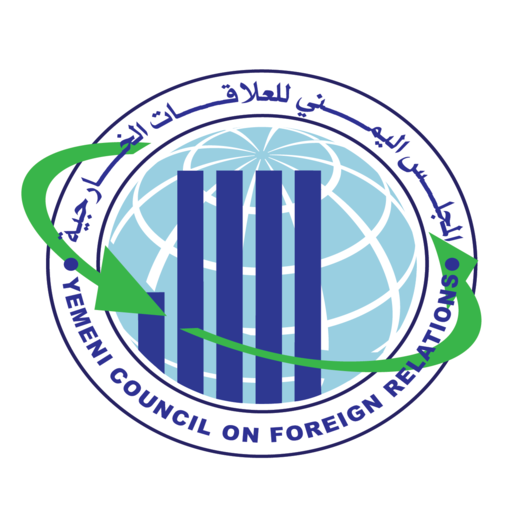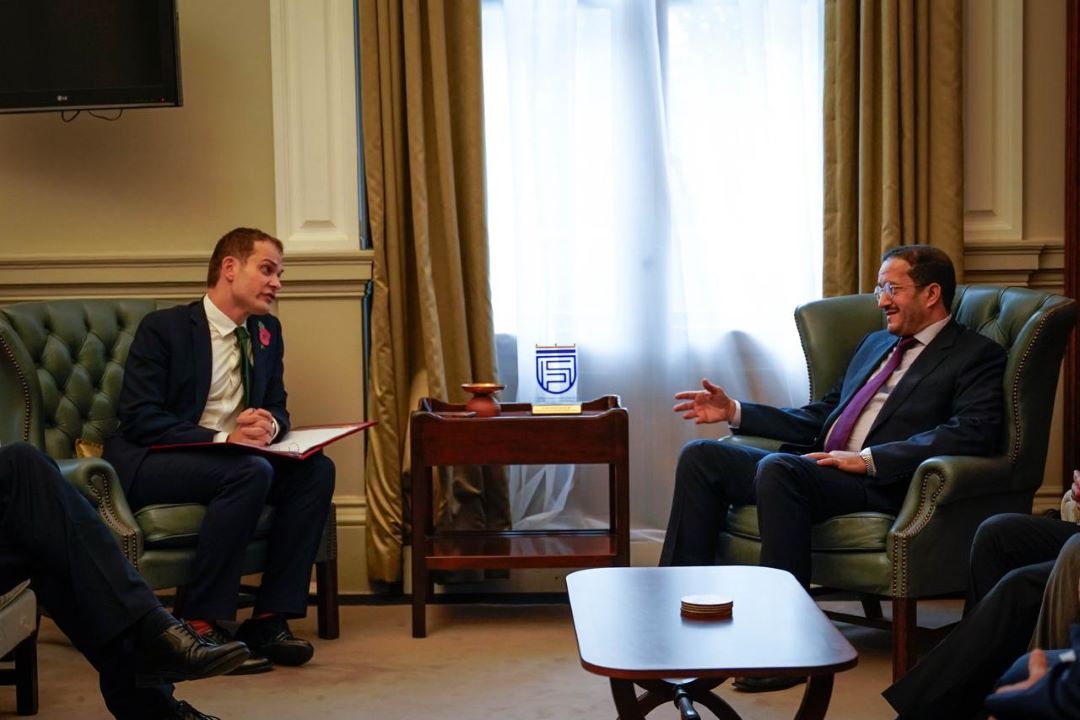Source: Saba News Agency
Sheikh Othman Mujalli, a member of the Presidential Leadership Council, met on Tuesday at the British Foreign Office with the British Minister of State for the Middle East and North Africa, Hamish Falconer, to discuss bilateral relations between the two countries and the role Britain plays internationally in enhancing security and stability in Yemen.
At the beginning of the meeting, Mujalli conveyed the greetings of His Excellency Dr. Rashad Mohammed Al-Alimi, the President of the Presidential Leadership Council, and his fellow council members to King Charles III and the Government of the United Kingdom, appreciating Britain’s role in addressing the humanitarian crises caused by the Houthi militia supported by the Iranian regime.
Mujalli explained that peace is the demand of the Yemeni people suffering from the Houthi coup and its war against the state, stating, “For the sake of peace, we have gone to all consultations starting from Geneva 1 and Geneva 2, the Kuwait talks, Stockholm, and Dhahran al-Janub in Saudi Arabia, and all calls for a just and comprehensive peace in Yemen according to international resolutions – a peace that is honorable, sincere in intentions and actions, saves the blood of our people, and preserves their rights and their right to live in peace.”
Mujalli emphasized that the destructive Iranian role extends its harm to the region and the world by supplying the terrorist Houthi militia with weapons, ballistic missiles, and drones, threatening commercial ships in the Red Sea and the Arabian Sea, obstructing food supply chains, and causing a global crisis.
He also highlighted the recent practices of the Houthis, which now affect workers in international and UN humanitarian organizations and embassy staff, whom the Houthis still kidnap and subject to the most severe forms of psychological and physical torture, disregarding warnings and calls from embassies and international organizations for their swift release. This leaves the families of hundreds of abducted journalists and activists in a state of terror, fear, and concern over the unknown fate of their loved ones. He affirmed that the Houthis have obstructed all prisoner exchange deals sponsored by the United Nations and the UN Envoy Hans Grundberg.
Mujalli stated, “Everyone pays the price for preventing the legitimate government from liberating Hodeidah port, which the Houthis use, both previously and currently, for non-humanitarian purposes, smuggling weapons, and turning it into an operations room for attacking ships and disrupting international maritime traffic in the Red Sea.”
Furthermore, Mujalli pointed out the importance of the role played by the brothers in the coalition supporting legitimacy, led by the Kingdom of Saudi Arabia and the United Arab Emirates, which has had a tangible impact in alleviating the suffering of Yemenis through the provision of humanitarian and emergency aid, supporting the economy, and strengthening the national currency.
For his part, the British Minister expressed his pleasure in meeting Sheikh Othman Mujalli, reaffirming his country’s commitment to continue working with international partners and neighboring and regional countries to combat terrorism and secure maritime routes in the Red Sea. He reiterated Britain’s commitment to achieving sustainable peace in Yemen and supporting the efforts of the Presidential Leadership Council and the government to improve the economic situation.

